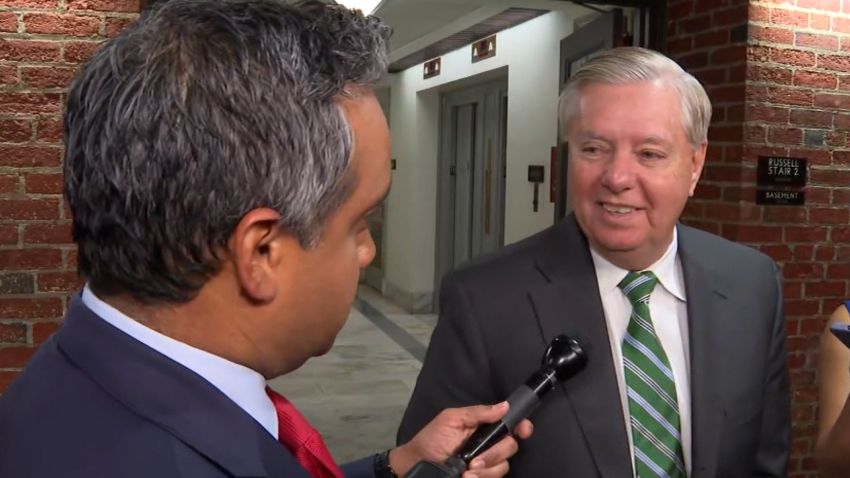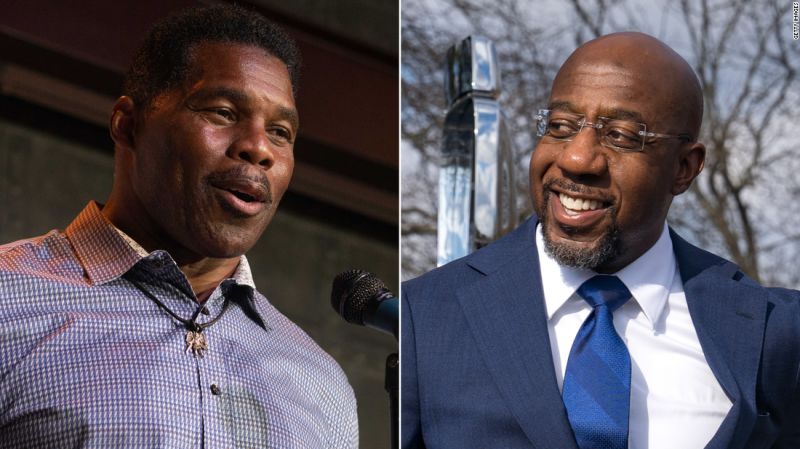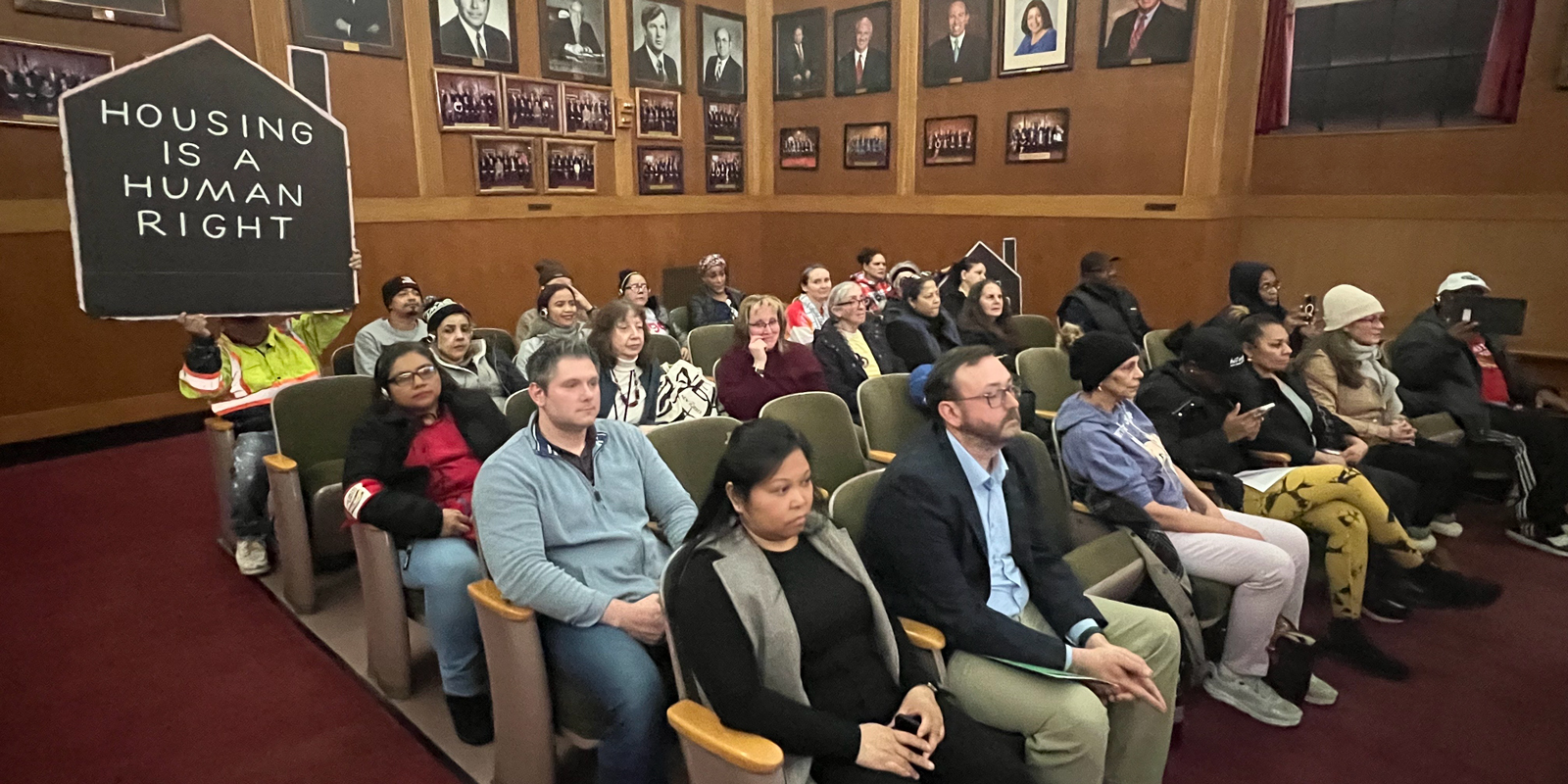Editor’s Note: Peniel E. Joseph is Barbara Jordan chair in ethics and political values and founding director of the Center for the Study of Race and Democracy at the LBJ School of Public Affairs at the University of Texas at Austin, where he is a professor of history. He is the author of “The Third Reconstruction: America’s Struggle for Racial Justice in the Twenty-First Century.” The views expressed here are his own. View more opinion on CNN.
CNN
—
As a Black man, I found the US Senate race between Raphael Warnock and Herschel Walker a particularly painful one to watch, observe and analyze. The assumption that a Black football player whose celebrated symbolism in Georgia would be enough to split the Black vote thankfully went unrealized, but the reality that a number of White Georgians were willing to support Walker underscores the troubling questions ahead for a country mired in division and bracing for former President Donald Trump’s bid for his old office in 2024.
I’m relieved that Warnock, who serves as pastor of Ebenezer Baptist Church in Atlanta where Dr. Martin Luther King Jr. and Sr. once led, defeated woefully unqualified Walker and claimed a full six-year term. His victory in a hotly contested race represents a triumph of substance over cynicism.
Walker possessed absolutely no credentials to become the Republican Party’s Senate nominee, other than being a famous former athlete friendly with Trump.
Yet Walker, who starred as a running back during the early 1980s at the University of Georgia, turned this contest into a race to the bottom and ran a campaign whose toxic imprint won’t fade away so easily. Backed by Trump (who reportedly personally recruited the Heisman Trophy winner to run against Warnock) and a MAGA movement running on fumes, Walker served as an extreme manifestation of the ongoing misunderstanding and disrespect of the Black community by the Trump wing of the GOP.
I grieve for the parts of America that enthusiastically embraced Walker’s candidacy. Some people are hopelessly unaware of the negative message their support of him sent to millions of Black Americans, who won’t soon forget it.
The GOP embrace of Walker represents an American tragedy. Walker’s behavior on the campaign trail included incoherent ramblings about movies and farm animals, nonsensical asides that went nowhere and dancing in front of overwhelmingly White audiences in bizarre scenes that recalled the minstrel shows of the Jim Crow era. The whiff of the Jim Crow era’s objectification of Black men as intellectually feeble but physically powerful grew stronger as Walker’s humiliating campaign continued to showcase the GOP’s failure to understand or connect with Black voters.
Yet the allegations that Walker serially abused women, traumatized his son Christian (who has openly criticized his father’s fitness for public office), engaged in extramarital affairs and pressured women into abortions did not prevent just over 48% of Georgians from supporting him. When pressed by reporters, Walker (who denied some of the allegations of violence against him and has cited mental health issues but hasn’t denied being violent toward his wife) rejected the abortion allegations. “You know, I’m done with this foolishness,” he told reporters. “I’ve already told people this is a lie.”

Hear what Lindsey Graham said about some GOP blaming Trump for party losses
For too many White voters who remain enthralled by Trump, MAGA and January 6, Walker represents the only form of racial “progress” they find acceptable – and that problem wasn’t defeated at the polls the way Walker the candidate was. For too many of these voters, only a Black man who knows his “place”— as a figurehead for a Republican Party openly pursuing a policy agenda of voter suppression, educational censorship and reproductive injustice — is worthy of the support of many parts of Georgia’s electorate, a mere two years after George Floyd’s murder sent the entire nation (and parts of the world) into a period of public rebellion and private introspection.
White support for Walker sends the exact wrong message for America at this moment in our history, not simply about political parties or ideology but also about the direction of our country. Still, I found hope in Warnock’s victory. While all the votes have yet to be counted, almost 100,000 more Georgians voted in support of a campaign whose belief in multiracial democracy represents ancestral dreams in action.

Hear why Marjorie Taylor Greene thinks Herschel Walker lost in Georgia
Black women in particular proved key to Warnock’s victory. Former Democratic nominee for governor Stacey Abrams’ efforts in recruiting Warnock to become a candidate in 2020 and helping to organize the largest voting turnout campaign in the Peach State’s history paid amazing dividends in 2022. The Warnock campaign’s grassroots efforts helped to build the kind of multiracial coalition that would have made Dr. King proud.
On January 5, 2021, Warnock became the first Black person elected to the US Senate from Georgia in American history. Alongside Jon Ossoff, who became the first Jewish senator ever elected from the state, these historic victories were overshadowed by the tragic circumstances that commenced the next day.
There is a uniquely American symmetry in what has followed in the almost two years since then. Trump’s election denialism and toxic rhetoric have blinkered the GOP’s political imagination and policy vision. If Warnock’s surprise win in 2021 reflected the galvanizing power of the racial and political reckoning unleashed the previous summer, this hard-fought victory represents a clear moral rejection of the kind of cynical political environment that leads to candidates such as Walker in the first place.
And that is reason enough to fully acknowledge the pain left behind by Walker’s candidacy, and even more reason to celebrate Warnock’s win as more than a partisan victory for the Democratic Party. It is a much-needed step toward realizing the dream of multiracial democracy.




















